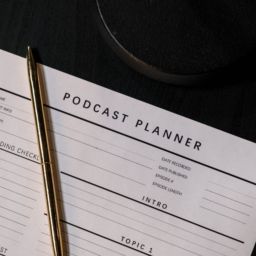
According to Forbes, 74% of workers expect remote work to become standard. Make this standard your reality as you search for your next role in 2022.

Photography by Starla Mathis
With career site LinkedIn sharing that the availability of remote roles has risen 357%, it’s no secret that workers are craving flexibility and autonomy. If a shift in your work environment, and a reduction of commute, is in order, it’s time to check in with The HR Guru, Kristen Lampkin.
Kristen is an HR professional with over a decade of experience across talent acquisition, performance management, organizational development, employee relations, coaching, and inclusion and diversity. We chatted with Kristen on how candidates can compete for the best remote roles out there today.
STAND OUT, EVEN IN A COMPETITIVE MARKET
While presenting a desirable perk for most candidates, remote roles can also mean more competition. When commute doesn’t matter, more talented professionals could be vying for the positions you’re most interested in. Kristen recommends that candidates do what they can to stand out in a potentially crowded talent pool.
“Ensure [the] keywords that are listed in the job description are reflected on your resume,” says Kristen. Doing so can help boost the chances of your profile making it past applicant tracking systems, which are more prevalent as talent acquisition teams find themselves inundated with resumes.
Candidates can self-scan their resume against the job description, work with a resume coach, or use an online tool. Job tracking tool Teal can help you track the jobs you’re interested in and help identify the keywords needed for a solid application.
TO COVER LETTER, OR NOT TO COVER LETTER?
Do you let out an audible groan when an application asks you to draft a cover letter? Explaining why you want the job and drafting a story inclusive of your resume and aspirations can be draining. Many job application portals have a space for an optional cover letter, but should you add one?
Kristen advises that cover letters can be an effective tool when you are transitioning into a new career, are a recent grad, or have a gap in your work history. Otherwise, “I would place energy into networking when it comes to job searching,” she says.
IS REACHING OUT AN OVERSTEP OR A SLICK MOVE?
We all know and love social media. And our internet research skills could rival those of Joe Goldberg, even on his best day. But where’s the line of appropriateness when it comes to job searching?

Photography by Starla Mathis
Kristen recommends making an informed introduction for jobs that are high on your list. She’s even had some success in finding quality candidates thanks to a reach-out.
“I recommend sending messages on LinkedIn … [include] why you are interested in the position you applied for and [attach] your resume,” says Kristen.
If you’re nervous, try to think of how you’d introduce yourself in person. Find a commonality through a prior employer or industry as a means to break the ice. Keep it brief, as most recruiters and hiring managers are swamped. Target your message and your resume to have the best chance to stand out.
If you’re nervous, try to think of how you’d introduce yourself in person.
WHAT TO DO IN THE FACE OF REJECTION
You spend hours researching a role, updating your resume, drafting a cover letter, and, finally, submitting your application.
And … you get rejected. Ouch. How do you stay motivated when you just aren’t getting interest from seemingly perfect-fit roles?
“I often share with my clients and followers that rejection could be redirection,” Kristen says. She recommends adding networking to your job search strategy if you’re feeling stuck.
When the situation arises where you lose out on a role during a final round of interviews, Kristen reassures that asking for feedback is completely fair.
“Thank the company for the opportunity and ask if they could provide feedback on your interview to help you with your job search.”
LET’S TALK ABOUT MONEY, HONEY
Are you almost through the final stages of interviewing and ready to talk about money? Join us next week for a deep dive into compensation. Learn about current trends, negotiation, and more in our conversation with Cassandra Faurote, a respected compensation expert, employee rewards consultant, and founder and CEO of Total Reward Solutions.
Natalie Derrickson is a communications pro and freelance writer who romanticizes the work from home experience, even though her aging dogs and mounting laundry piles can be distracting. You can find her on LinkedIn.
All of our content—including this article—is completely free. However, we’d love if you would please consider supporting our journalism with an Indy Maven membership.





















